"Tempest Rising: A Nostalgic '90s RTS Experience"
From the moment I launched the Tempest Rising demo, I was filled with a sense of nostalgia. The opening cinematic, complete with its cheesy dialogue from armored soldiers and a reedy scientist, brought a smile to my face. The game's music, UI design, and units are crafted to transport players back to the golden era of real-time strategy (RTS) games, reminiscent of late-night sessions playing Command & Conquer fueled by Mountain Dew, taco-flavored Pringles, and sleep deprivation. Experiencing this nostalgia through a modern game is exhilarating, and I'm eager to see what Slipgate Ironworks has planned for the full release and beyond. Whether engaging in Skirmish mode against clever AI bots or diving into Ranked Multiplayer, playing Tempest Rising feels as comfortable as slipping on a well-worn baseball glove.
This nostalgic experience is no coincidence. The developers at Slipgate Ironworks deliberately set out to create an RTS game that evokes the classics of the 90s and 2000s, while incorporating modern quality-of-life improvements. Set in an alternate 1997, Tempest Rising unfolds in a world where the Cuban Missile Crisis escalated into World War 3. Amidst the nuclear aftermath, mysterious flowering vines emerged, brimming with electrical energy and heralding a new era of power for those brave enough to harvest them.
Tempest Rising Screenshots

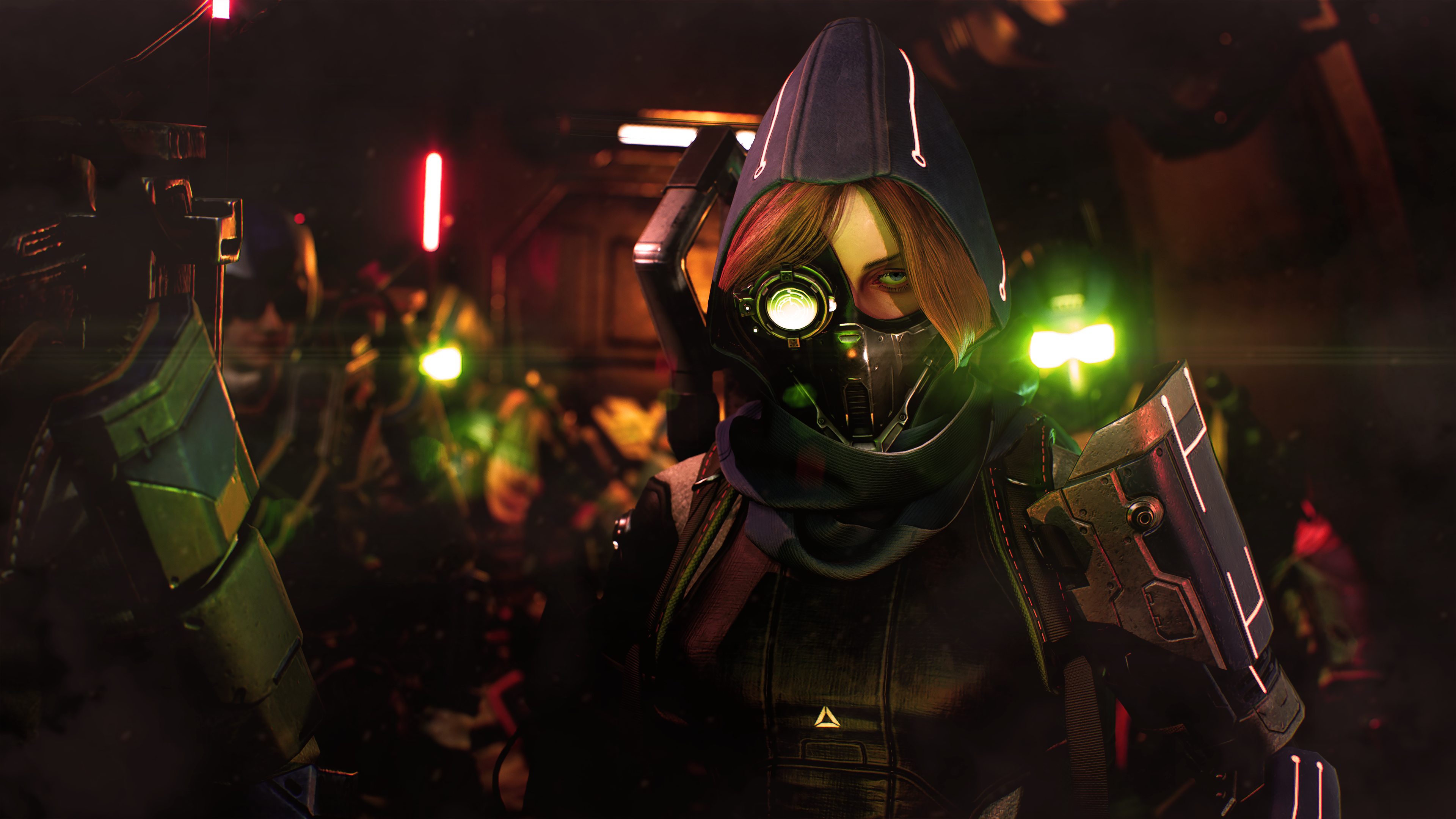 8 Images
8 Images
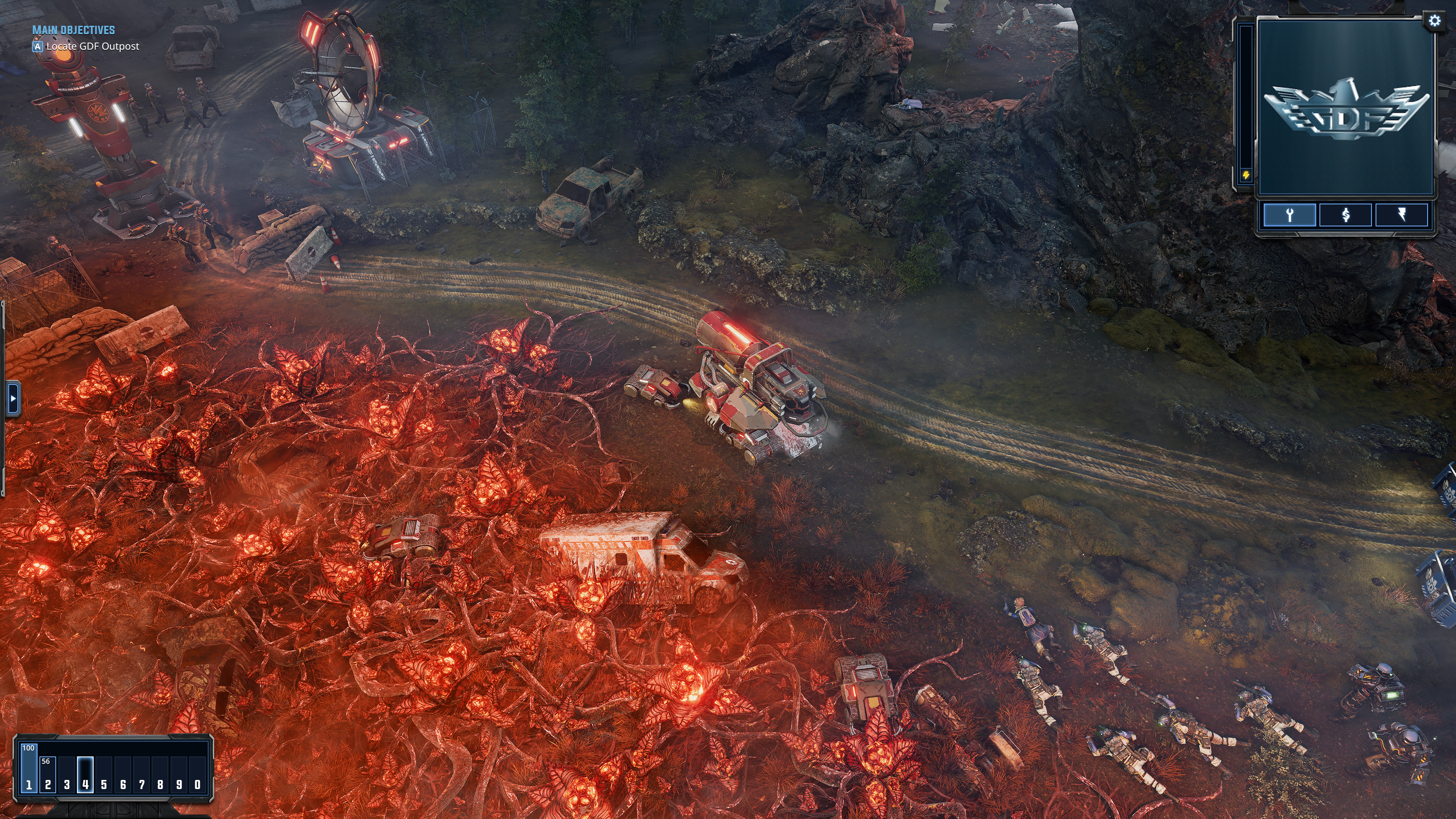
Since the demo I played focused solely on multiplayer, I'm eagerly awaiting the story mode, which will feature two replayable 11-mission campaigns, one for each of the main factions showcased in the preview. The Tempest Dynasty (TD), an alliance of Eastern European and Asian countries devastated by WW3, and the Global Defense Forces (GDF), an alliance of the United States, Canada, and Western Europe, are the factions available. A third faction remains a mystery, as it's not playable in the preview build, the Steam RTS Fest demo, or at launch.
The Tempest Dynasty particularly caught my attention, not only for its quirky 'death ball' vehicle, the Tempest Sphere, which amusingly rolls over and crushes enemy infantry, but also for its unique 'plans' system. These plans allow for faction-wide bonuses of three types, activated from the Construction Yard, the starting building for all players. With a bit of extra power generation and a 30-second cooldown for switching plans, players can strategically enhance their gameplay.
The Logistics Plan accelerates structure building and resource harvesting, including faster movement for mobile resource harvesters. The Martial Plan increases unit attack speed, provides resistance to explosives, and allows Machinist units to sacrifice health for a 50% attack speed boost. Lastly, the Security Plan reduces the cost of units and buildings, enhances the Repair function, and expands Radar vision. I found a dynamic rhythm by cycling through these plans, boosting my economy with Logistics, speeding up construction with Security, and then launching offensives with the enhanced combat capabilities of Martial.
The flexibility of the Tempest Dynasty extends beyond plans. Instead of establishing a base with a Refinery like the GDF, the Dynasty uses Tempest Rigs, mobile units that harvest resources until the field is depleted and can then move to new locations. This mobility makes my favorite 'fast expand' strategy easier and more effective, allowing Tempest Rigs to harvest resources far from my base without detection.
Another fun unit in the Dynasty's arsenal is the Salvage Van, which can repair nearby vehicles or switch to Salvage Mode to destroy any nearby vehicles, returning resources to the player. Sneaking up on unsuspecting opponents and using the Salvage Van to both weaken their forces and claim resources is a thrilling tactic.
The Dynasty's power plants can also switch to 'Distribution Mode,' which boosts the construction and attack speed of nearby buildings (some of which have cannons after upgrades) at the cost of taking damage. Fortunately, the mode automatically deactivates at critical health levels, preventing self-destruction.
While I'm drawn to the Tempest Dynasty, the GDF has its own appeal, focusing on buffing allies, debuffing enemies, and controlling the battlefield. My favorite GDF synergy involves the Marking mechanic, where certain units can mark enemies, causing them to drop Intel upon defeat, which is used for advanced units and structures. With specific Doctrine upgrades, marked enemies suffer various debuffs, enhancing the strategic depth of the game.
 Tempest Rising3D Realms Wishlist
Tempest Rising3D Realms Wishlist
Each faction offers three tech trees to explore, allowing players to tailor their strategy. The GDF's 'Marking & Intel' tree and the Dynasty's 'Plans' tree are just the beginning. Additionally, constructing specific advanced buildings unlocks cooldown abilities that can significantly influence battles, adding strategic depth and flavor to each faction's playstyle. While both factions have area damage and troop-spawning abilities, the GDF can also deploy spy drones, create remote building beacons, and temporarily disable enemy vehicles.
The Dynasty's fewer buildings, which can be upgraded to advanced versions, make losing a structure to an enemy Engineer particularly painful. However, the Lockdown ability prevents enemy takeovers, albeit at the cost of the building's action. The Field Infirmary ability, which allows for troop healing anywhere on the map, complements the Dynasty's focus on both infantry and mechanized units.
There's much more to explore, and I'm excited to delve deeper, especially with the launch version's Custom Lobbies, where I can team up with friends against the clever AI bots. Until then, I'll continue battling alone, crushing my bot enemies with swarms of death balls.
-
1
![Roblox Forsaken Characters Tier List [UPDATED] (2025)](https://imgs.ksjha.com/uploads/18/17380116246797f3e8a8a39.jpg)
Roblox Forsaken Characters Tier List [UPDATED] (2025)
Mar 17,2025
-
2
Roblox UGC Limited Codes Unveiled for January 2025
Jan 06,2025
-
3

Stardew Valley: A Complete Guide To Enchantments & Weapon Forging
Jan 07,2025
-
4

Pokémon TCG Pocket: Troubleshooting Error 102 Resolved
Jan 08,2025
-
5

Free Fire Characters 2025: Ultimate Guide
Feb 20,2025
-
6
Blood Strike - All Working Redeem Codes January 2025
Jan 08,2025
-
7

Blue Archive Unveils Cyber New Year March Event
Dec 19,2024
-
8

Roblox: RIVALS Codes (January 2025)
Jan 07,2025
-
9

Cyber Quest: Engage in Captivating Card Battles on Android
Dec 19,2024
-
10

Delta Force: A Complete Guide to All Campaign Missions
Apr 09,2025
-
Download

A Simple Life with My Unobtrusive Sister
Casual / 392.30M
Update: Mar 27,2025
-
Download

Random fap scene
Casual / 20.10M
Update: Dec 26,2024
-
Download
![Corrupting the Universe [v3.0]](https://imgs.ksjha.com/uploads/66/1719514653667db61d741e9.jpg)
Corrupting the Universe [v3.0]
Casual / 486.00M
Update: Dec 17,2024
-
4
Ben 10 A day with Gwen
-
5
Oniga Town of the Dead
-
6
A Wife And Mother
-
7
Cute Reapers in my Room Android
-
8
Permit Deny
-
9
Utouto Suyasuya
-
10
Roblox














